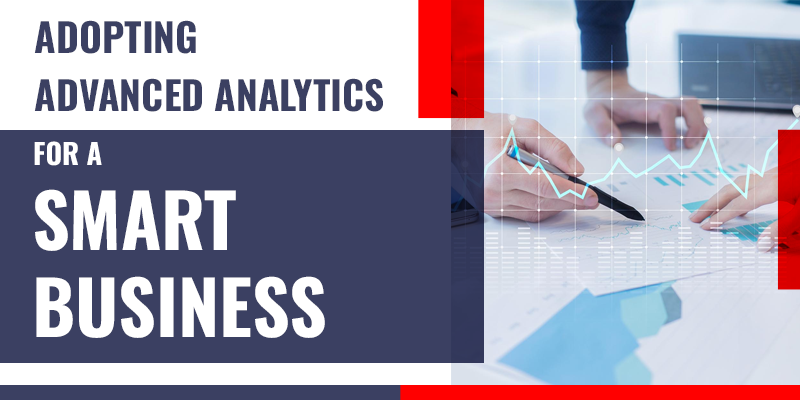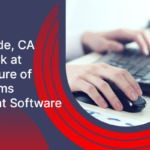How Claim Management Companies Can Enhance Their Practices
October 18, 2024
Advanced analytics in the insurance industry is causing a significant shift by challenging traditional working methods to open up new company growth potential. By the nature of their business, insurance companies collect massive amounts of data daily.
Today, insurance companies are implementing unique and better-advanced analytics globally to expedite business results. The need for fast, data-driven decision-making, enhanced fraud detection, and streamlined claims management solutions has prompted insurers to rely on data transformation services to address essential data and analytics requirements.
Common Problems in Claims Assessment
In the traditional landscape, insurers face a lot of problems. The traditional system demonstrated limitations, ranging from slow, paper-laden processes to inaccurate risk evaluation. This resulted in dissatisfied claimants and protracted settlement waiting periods.
The Shifting Landscape: Adopting Advanced Analytics for a Smart Business
Due to limitations in the traditional way of claims assessment, advanced analytics comes into play. Advanced analytics is an innovative approach utilizing the immense potential of Artificial Intelligence (AI) and Machine Learning (ML) to revolutionize the insurance industry.
Its inclusion to achieve business goals has resulted in a paradigm shift in insurance companies’ operations. Advanced analytics can extract valuable insights from large data sets, which can be applied to various business applications.
Insurers increasingly turn to advanced analytics to protect their businesses from risks, improve the speed, accuracy, and relevance of data entry, claims management solutions, and fraud detection, and find new development prospects based on client information.
Unlocking the Potential: Significant Use Cases of Advanced Analytics
Undoubtedly, data has become the focus of the insurance sector, and when used correctly, it has immense potential. Let’s examine how advanced analytics has transformed claims assessment strategies.
Prevention of Fraudulent Claims
In the past, insurance companies used complicated methods that involved a lot of data and complicated calculations to find bogus claims. It might take time and work to do this job by hand. But now things are clearer and more creative! A lot of advanced data, like claims management solutions by Datagenix, can help you protect yourself from fraud. This technology can quickly find links that look fishy and acts that aren’t right because they use predictive modeling.
This cutting-edge technology finds potential insurers who are trying to cheat the system by doing things like making fake claims. By comparing the details of each claim to fraud cases from the past, these smart analytics, such as Datagenix’s claims management solutions, help you find people who need more help before they do. They are also smart enough to notice when users are acting in ways that don’t make sense, which could be a sign of a scam.
Improved Risk Control in Real-Time
One of the most common applications of modern analytical techniques in the insurance industry is comprehensive risk evaluations. Determining how much risk each applicant represents before providing insurance is applicable.
The insurance sector can access various data sources thanks to data analytic tools. Before issuing a policy, a rigorous risk assessment is conducted, and the policy is priced based on this evaluation. This proactive strategy improves risk control by reducing possible losses and fostering an organizational culture where risk management is a top priority.
Faster Claims Managing
Insurance companies can streamline processes and make things faster with advanced analytics capabilities. These advanced analytic algorithms automate routine tasks like entering data, reviewing documents, and assessing claims. This implies that everything is completed more quickly and effectively.
Quick claims processing software results in happier claimants and more immediate responses. People with insurance benefit from fast responses and expedited claims resolution.
Predictions of Healthcare Outcomes
In healthcare, advanced analytics is more than just guessing; it gives doctors and nurses the tools they need to make accurate predictions about how patients will do. Healthcare workers can guess how patients will react to treatments by looking at genetic information, medical experiences, and electronic health records. This not only helps people make better decisions but also lets treatment plans be tailored to each person’s needs, which results in better care overall.
Supply Chain Optimization
Advanced analytics improves supply chain management by helping with planning transportation, predicting demand, and making the best use of inventory. This helps businesses cut costs, get rid of waste, and boost the performance of their entire supply chains.
Advanced analytics help human resources a lot with finding new employees, keeping old ones, and planning the workforce. Companies can find trends and make choices based on data by looking at different types of data about employee performance, involvement, and job advancement. This strategic method leads to better people management, which in turn makes workers happier and more efficient.
Credit Scoring and Risk Assessment
To score credit and figure out how risky something is, banks use advanced analytics. By looking at different types of financial information and how customers act, lenders can get a better idea of a person’s creditworthiness. This helps them make better loan choices and lowers their financial risks.
Optimization of Energy Consumption
Advanced analytics are used in the energy industry to improve performance and optimize energy use. Smart grid analytics look at data from monitors and devices to control how energy is distributed, guess how much will be needed, and cut down on waste.
Advanced data is a key part of making the customer experience better. Businesses can learn more about how customers act by looking at their contacts, comments, and tastes across all of their touchpoints. This knowledge helps create customized experiences, make goods and services better, and build loyal customers over time.
Conclusion
Using advanced analytics to evaluate claims is not just a technological improvement; it’s a big change in how insurers see and handle risk. Besides making claims handling better, the benefits include lowering preventable risks and finding fake applicants. To make your clients happier, run your business more efficiently, and avoid or reduce losses, you need to use advanced analytics. Check out Datagenix’s cutting-edge claims management solutions right now to stay on the cutting edge of insurance industry innovation. Improve your risk management methods and look forward to a future where insurance companies are more efficient, safe, and focused on their clients.
7 Features Every Online Claim Management System Needs
June 27, 2024What to Look for in Claims Management Software?
May 8, 2024









